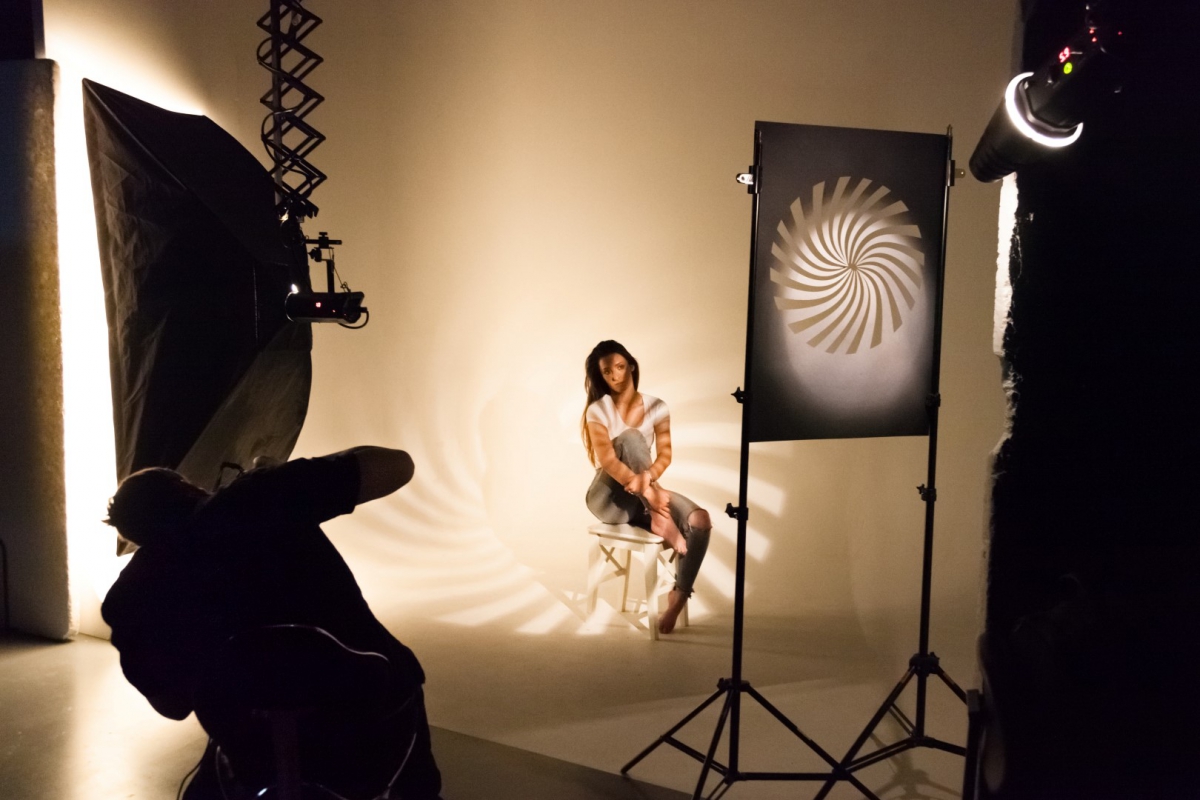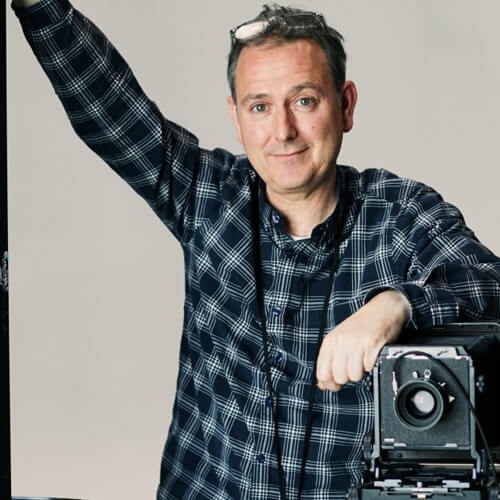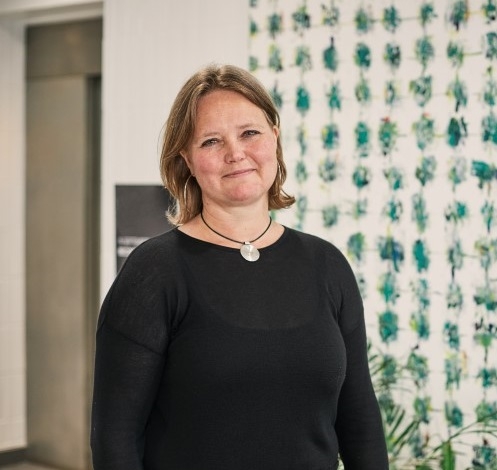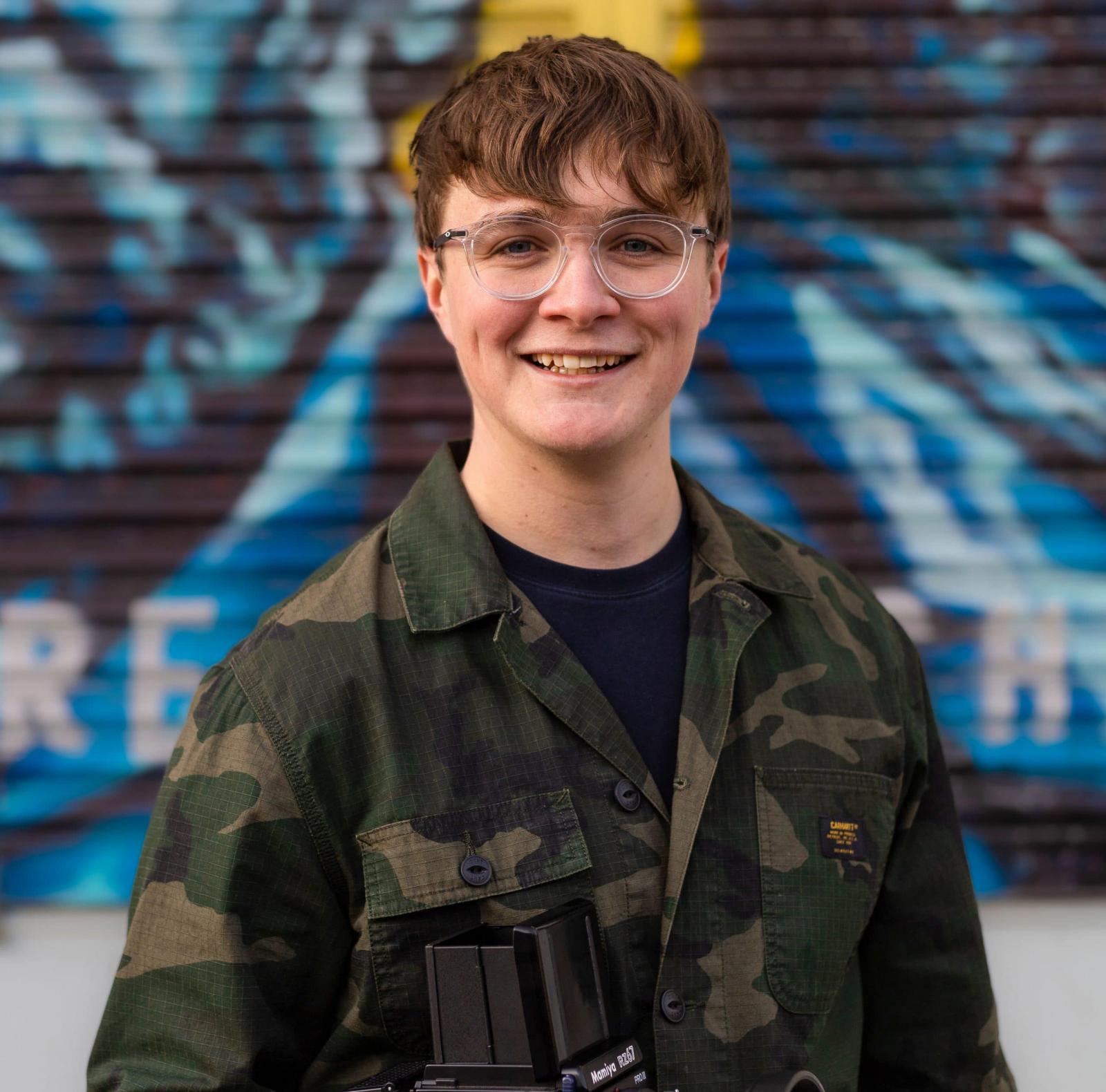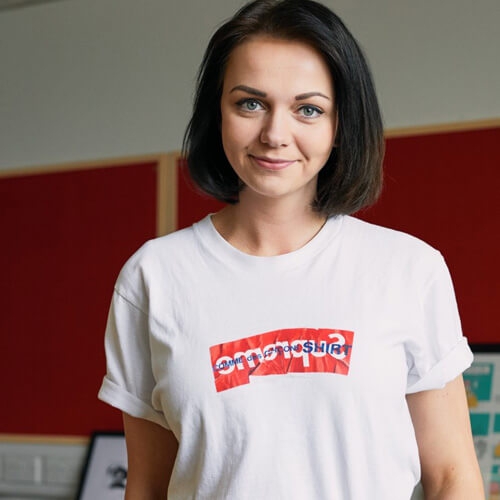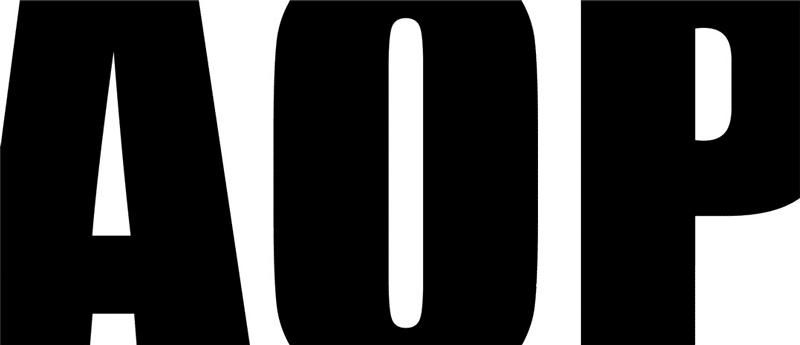The programme encourages you to establish a balance between your creative vision and the technical processes required to produce work for a number of photographic outputs and formats. Throughout the course you will have access to Canon, Sony, Hasselblad and Phase One camera systems, plus a range of industry- standard photographic equipment. You will also use a fully equipped professional studio and darkroom, which are designed to prepare you for the industry.
This photography degree is based in superb facilities and taught by staff who work in the industry, so you can be assured of an exceptional learning experience. The focus is on providing you with the technical and creative skills you will need to become a successful practitioner in this industry. This means documenting the world around you through your own personal vision, creating great photographic art or fulfilling client briefs on time and within budget, while producing stunning high-quality images.
Our graduates have gone on to undertake post-graduate study and/or to work in a wide range of careers including: editorial, documentary, fashion, advertising, photojournalism, sport, social portraiture, music, photo-retouching, picture editing, publishing, curating and education. All students are offered training to a professional standard in Capture One, Adobe Lightroom and the Adobe Creative Suite.
Awards
Source Graduate online 2022
Ilford Student Awards 2022
Photo North Student Competition 2022
Taylor Wessing Portrait Prize 2022
Portrait of Britain 2022
British Photography Awards 2021 (shortlisted)
Association of Photographers (AOP) Student Awards 2018, 2019 and 2021 – shortlist
EIZO Student Awards 2018 and 2019 - finalist
SONY World Photography Awards 2016 - final shortlist
Association of Photographers (AOP) Course of the Year 2017*
*The current degree is a successor to the 2016/2017 award-winning programme.
First Year:
• Introduction to a range of photographic specialisms and techniques
• Professional digital workflow and printing
• Photography editing techniques
• Shooting film and darkroom practice
• Studio and location lighting techniques
• Introduction to critical theory and contexts
Second Year
• Advanced techniques and processes
• Creative thought processes in the production of images
• Moving image skills
• Story telling through visual imagery
• Critical thinking and contemporary photography
• Independent working and your own photographic practice
Final Year:
• Project research and development
• Your dissertation or report
• Professional practice skills (including employability, self-promotion and networking)
• Your Final Major Project
• An exhibition of your work and production of your portfolio
Our graduates have gone on to pursue successful careers within this industry. Including:
• Boo George, Vogue
• Peter Caton, Photojournalist + NGO
• Lucinda Grange, Travel Photographer, New York
• Jason Hynes, Independent Photographer
• Lauren Fletcher, Editorial Photographer
• Georgia Donkin, Sotheby’s
Graduates are working or undertaking postgraduate training in a wide range of careers including:
• Editorial
• Documentary
• Fashion
• Advertising
• Photojournalism
• Sport
• Social Portraiture
• Photo Retouching
• Picture Editing
• Publishing
• Curating
• Education
• Darkroom and Printing Skills
• Digital Workflow and Studio Lighting
• Advertising and Fashion Photography
• Documentary Photography and Storytelling
• Moving Image
• Creative Thinking and Context
• Professional Practice
• Final Show and Portfolio
Your portfolio is a visual statement it says a lot about an applicant and their practice. The advice below is not meant to be restrictive but rather offers some simple advice to help you prepare for your interview.
What we like to see
• Clearly laid out portfolio, which is easy to look through.
• Evidence of visual imagery/photographs that you have created yourself.
• Considered quality not quantity and avoiding repetition.
• Organised into sections.
• Notebooks/contact sheets that indicate developmental processes -
experimental.
• Simple presentation – if mounted black or white board is preferable.
Photographs
Series of photographs that indicate interpretation/technical ability - use of light,
composition, print quality, narrative, interaction with the subject, visual story,
associated research and how this feeds into the project – relevance, individuality,
ideas, experimentation, evidence of an ability to take a creative risk and experiment.
Sketchbooks
Evidence of your level of understanding photographic technique; this includes an ability to use a camera with exposure/composition/lenses, different focal lengths and work flow. Written work will include the influence and reference to other photographers/artists/filmmakers.
Digital Work
If bringing a digital portfolio, we advise a maximum of 20 images prepared and
ready to view on a tablet/laptop. The work should be considered and organized,
displaying the ability that you have decided to choose key images before placing
them in the appropriate order to be viewed during the interview. Be selective with your images that you can talk confidently about.
Finally
Be honest. Be yourself. Relax.
Our school engages with a wide range of partners working across each creative sub-sector to ensure that teaching and learning are in line with the latest developments in and requirements of industry, including:
Alex Schneidman
Alex Schneideman is a photographer and master printer. In 2004 he founded FLOW. FLOW is a fine art photographic printing studio - a leading destination for galleries, photographers, artists from across the world.
FLOW mix a bespoke approach to printing work with state-of-the-art technology for a global clientele.
flowphotographic.com
Jamie Hawkesworth
Jamie Hawkesworth is a British fashion and documentary photographer. Hawkesworth's first photography project was made in Preston bus station as a member of the collective Preston is My Paris. The work was published in their 2010 self-published newspaper as well as in his own 2017 book, both called Preston Bus Station.
He is now an in-demand fashion photographer for the likes of Vogue and the New York Times, his portraits of models in expensive clothes retain his signature style, a merging of documentary and street portraiture.
In 2021 he published The British Isles which The Guardian describes as “an index of a modern, multicultural Britain in all its rich otherness, it is also a portrait of a place that is definably British in its myriad telltale social signifiers, from fish and chips to seaside fairgrounds, train platforms to corner shops.”
jamiehawkesworth.co.uk
Frede Spencer
Frede is the founder of Twenty Twenty. Twenty Twenty is a London based creative agency representing a multi-disciplined group of visual artists working across photography, illustration, motion and CGI. They specialise in creating work for advertising, automotive, fashion, still life and lifestyle. Twenty Twenty also includes a full service production arm for shoots both in the UK and overseas.
twentytwenty.co
